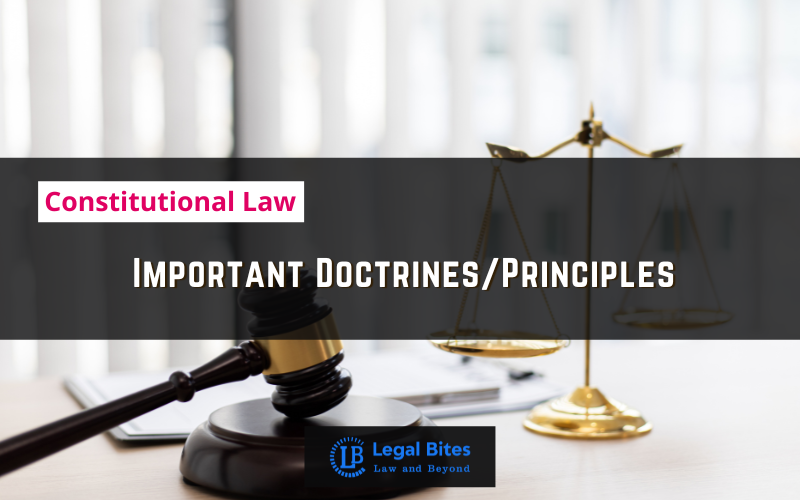According to one of the Service Rules, the services of a government employee may be terminated after giving him three months’ notice. Discuss the constitutional validity of this rule.
Question: According to one of the Service Rules, the services of a government employee may be terminated after giving him three months’ notice. Discuss the constitutional validity of this rule. [BJS 1991] Find the answer to the mains question only on Legal Bites. [According to one of the Service Rules, the services of a government employee may be… Read More »
;
Question: According to one of the Service Rules, the services of a government employee may be terminated after giving him three months’ notice. Discuss the constitutional validity of this rule. [BJS 1991] Find the answer to the mains question only on Legal Bites. [According to one of the Service Rules, the services of a government employee may be terminated after giving him three months’ notice. Discuss the constitutional validity of this rule. [BJS 1991] Answer Article 309 talks about...
Question: According to one of the Service Rules, the services of a government employee may be terminated after giving him three months’ notice. Discuss the constitutional validity of this rule. [BJS 1991]
Find the answer to the mains question only on Legal Bites. [According to one of the Service Rules, the services of a government employee may be terminated after giving him three months’ notice. Discuss the constitutional validity of this rule. [BJS 1991]
Answer
Article 309 talks about the recruitment and conditions of services of persons serving the Union or any State. It empowers the Parliament and the State legislature regulates the recruitment, and conditions of service of persons appointed, to public services and posts in connection with the affairs of the Union or of any State respectively.
Accordingly, so long as the Constitutional provision is not contravened, the rules governing the conditions of service of Government servants can be altered or amended by the Government from time to time according to the exigencies of the public service without the consent of a Government servant concerned who will be bound by such amendment or alteration in the rules. The conditions of services must conform to the provisions of the Constitution that are mandatory and cannot violate any fundamental rights.
The above illustration is from the case of West Bengal Electricity Board v. Desh Bandhu Ghosh [(1985) 3 SCC 116]. In this case regulation, 34 of west Bengal state electricity regulation was challenged on the ground that it was arbitrary and violative of Article 14 of the Constitution. Under Regulation 34, it was provided:
In the case of a permanent employee, his service may be terminated by serving three months’ notice or on payment of salary for the corresponding period in lieu of the 3-months notice. The respondent approached the court when the HC declared the said rules to be arbitrary and violative of Article 14 but the state Electricity Board approached the SC stating the regulation which has conferred upon it the power to do so.
Declaring the said regulation as arbitrary and ultra vires, the Supreme Court said, on the face of it, the regulation is totally arbitrary and confers on the board a power which is capable of vicious discrimination. Inclusion of such service rules is the conferment of arbitrary powers on the Executive through regulation is violative of Article 14.
Important Mains Questions Series for Judiciary, APO & University Exams
- Constitutional Law Mains Questions Series Part-I
- Constitutional Law Mains Questions Series Part-I
- Constitutional Law Mains Questions Series Part-II
- Constitutional Law Mains Questions Series Part-IV
- Constitutional Law Mains Questions Series Part-V
- Constitutional Law Mains Questions Series Part-VI
- Constitutional Law Mains Questions Series Part-VII
- Constitutional Law Mains Questions Series Part-VIII
- Constitutional Law Mains Questions Series Part-IX
- Constitutional Law Mains Questions Series Part-X



